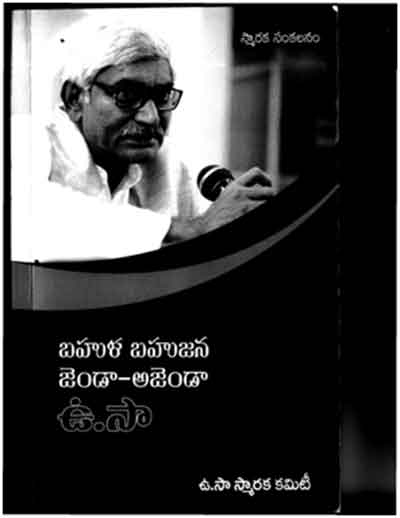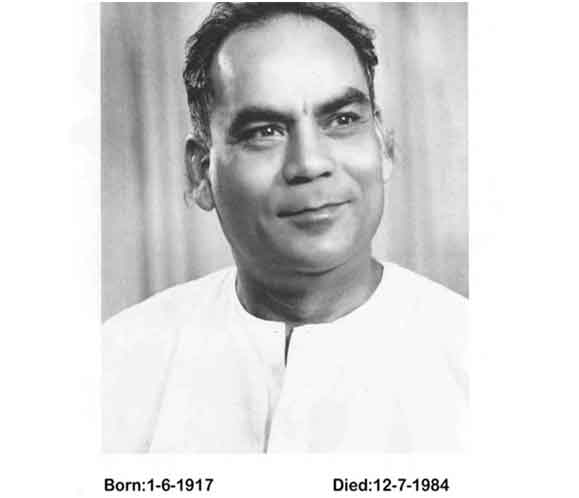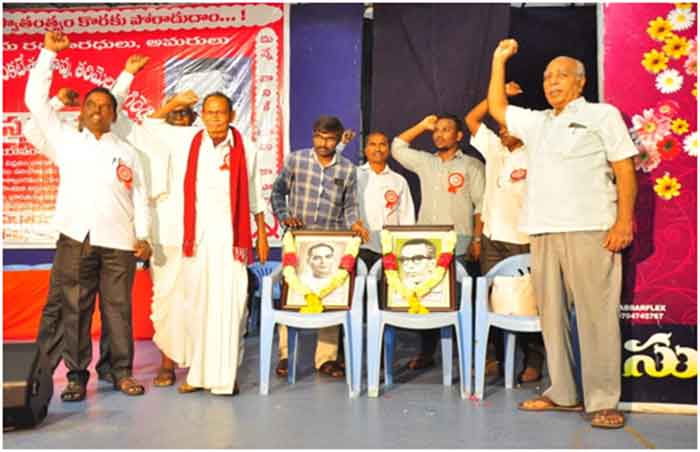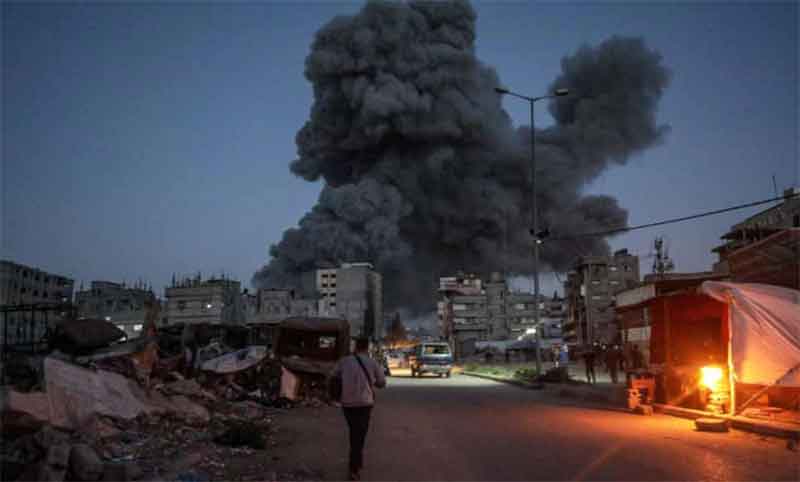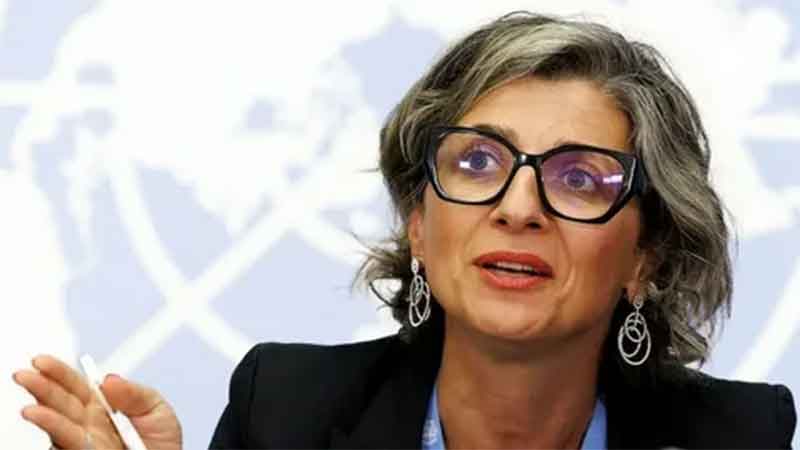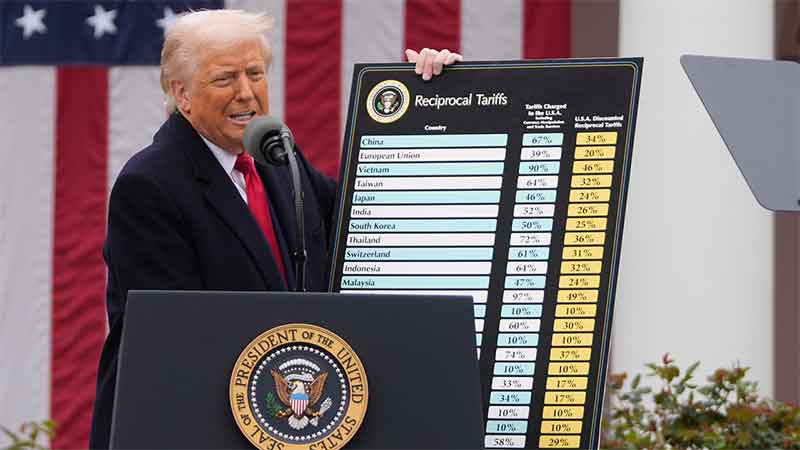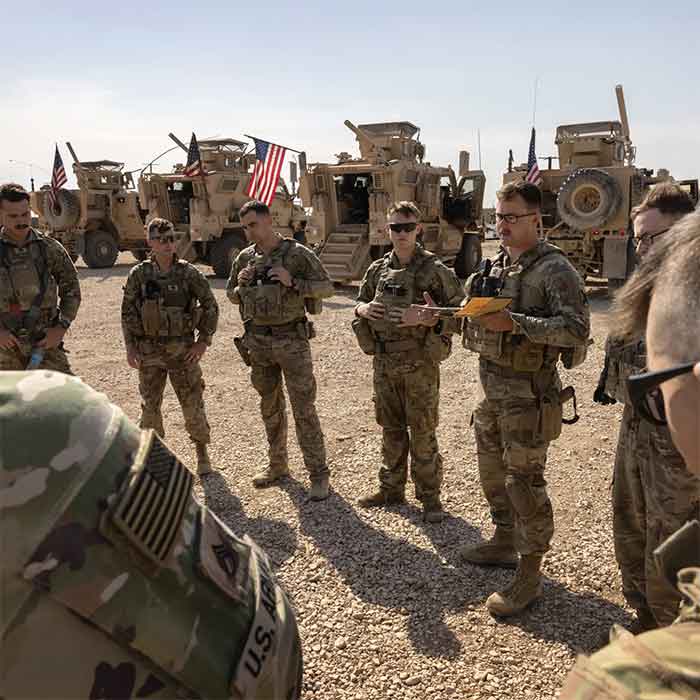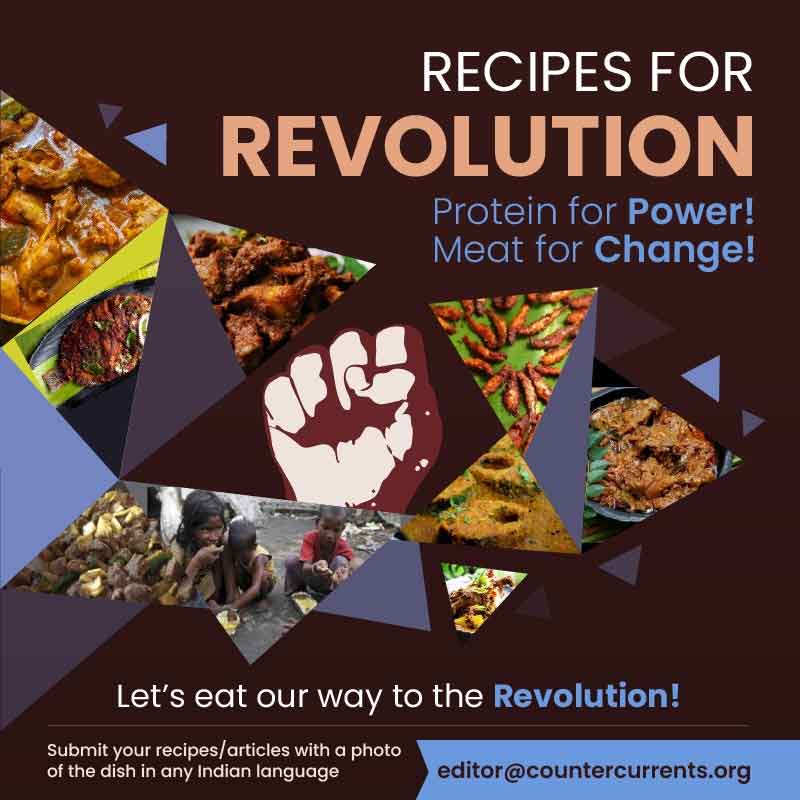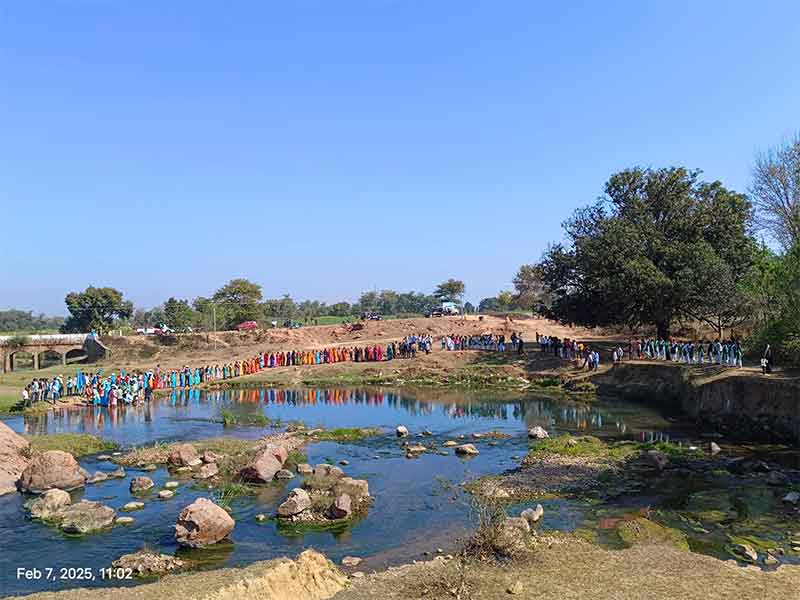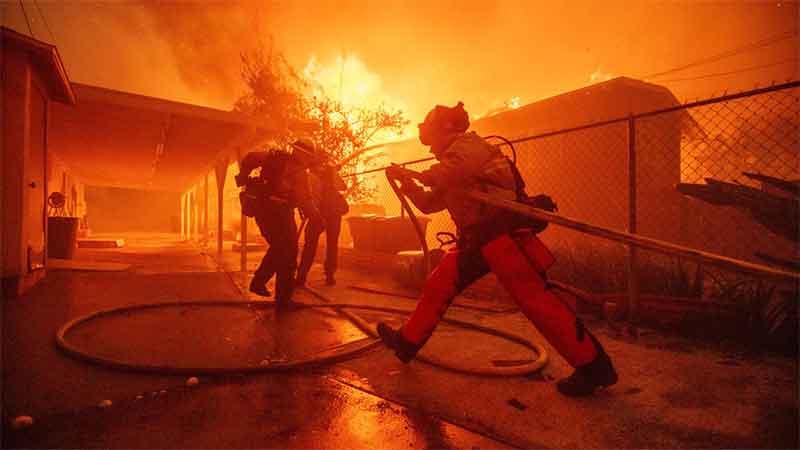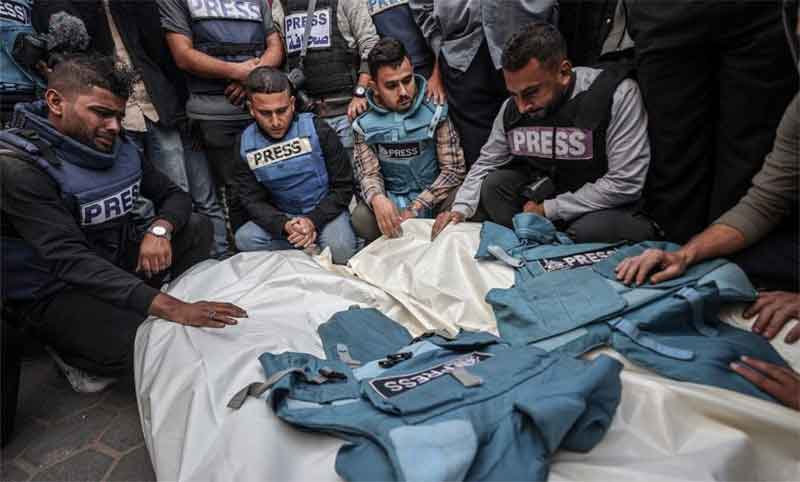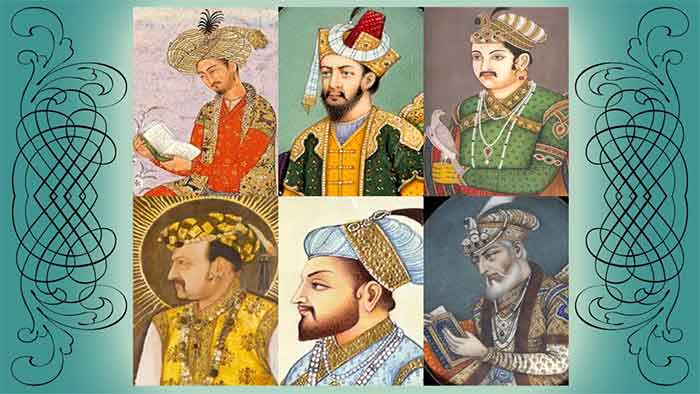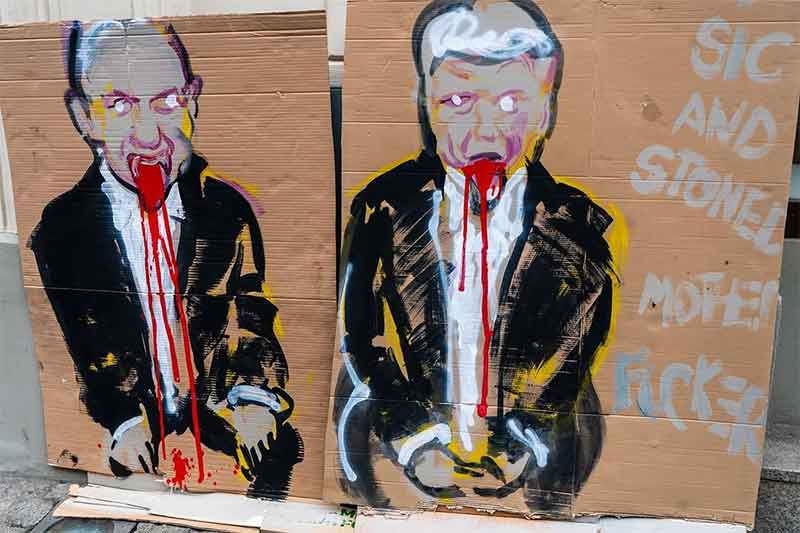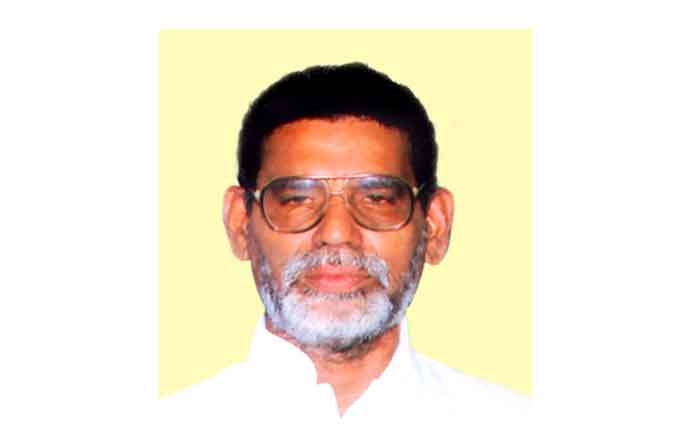
Com.Vuppuluri Subba Rao (1924-1998), veteran working class leader of AP
Com.Vuppuluri or VSR in short, veteran communist and working class leader of AP, and Founder of FITU, breathed his last on 8th September, 1998. Every year he is remembered by his followers and admirers in September, in meetings held by Trade Unions (TUs) he founded. Due to Covid-19, we are unable to do that way.
As a follower of VSR , and successor leader of FITU, and I wanted to write a tribute to mark the death anniversary, so as to reach readers who are not Telugu-speaking. So I write this exclusively for countercurrents.org.
I am situating the story of VSR in the context of a recent controversy created by Prof Kancha Ilaiah Shepherd. Some of his views were circulated not only through countercurrents.org., but also in Telugu through social media and also otherwise, (some were translations from countercurrents.org). One such was his prime time, Sunday interview in ABN Andhra Jyothi channel, on August 23. In that interview, he once again spoke of “Brahminical communist” DV Rao and “Sudra communist” T.Nagi Reddy. In both media, he also hailed Prime Minister Modi’s Ayodhya speech. In the interview, he invited particularly written criticism, “not in facebook or twitter”, but in some serious forum. So I chose to write for the esteemed journal countercurrents.org.,in which some issues were earlier covered.I confine only to some of the issues issues he raised in the context of this tribute to VSR.
Instead of a mere refutation of Ilaiah, I thought it better to write a brief account of com VSR (Vuppuluri Subba Rao,1924-1998), illustrious communist, which would be useful for general readers, and social scientists, as also would help to understand various questions that came up in the above controversy.
Through an obituary about Usaa, and further a related article later, (countercurrents.org. on August 4,and18 ) both written by him, Ilaiah created a controversy, not only around himself, which is nothing new, but that unnecessarily put Usaa and his wife too, into a posthumous mess, more so among readers of Telugu states.
Ilaiah speaks of “those days” in Andhra…and of Tenali, which was known as centre for cunning brahminism…of Brahminical, vegetarian communism etc etc…This article would concretely expose how some of these statements are inobjective, and not truthful.
Like VSR, I am also from East Godawari dt, of the same coastal Andhra; the place where “in those days” reformists like Kandukuri (1848-1919, from EG dt. See countercurrents.org, 2019,May 27 for more about him) (and Gurajada, also from coastal Andhra, See countercurrents.org, 2016, April 2) laid Andhra renaissance foundations with their reforms that touched not merely Brahmins as Ilaiah claims, but all sections of people, more so women, including dalits and BCs. It was acknowledged also by dalit leaders and dalit scholars on the subject.
Later, communists arrived and advanced the society. Ours was the district where a Dalit leader, Bojja Appala Swamy (BAS), was elected as Amalapuram MLA in 1952 as an SCF candidate backed by communists, he defeated the Congress candidate; and again in 1955, as an independent. BAS acknowledged role of reformists, including Kandukuri. He named one of his sons as Krishna Sastry, a Brahmin name, referring to a great poet of Pithapuram, who later was a President of Arasam, Progressive Writers’ Association, influenced by communists. His other son was Bojja Tarakam (1939-2016), very famous writer, activist who chose to work as a communist, and with revolutionary communists for years; he later sought to combine dalit politics with Marxism, but was not anti-communist. He was the lawyer and Civil Rights leader, who was actively associated in the famous Karamchedu (1985) and Chundur (1991) dalit massacre cases.
I have been a devoted trade union activist, and well known as a communist for the last 30 years. I did my diploma course in ITI, was a technical worker in the Godavari Fertilizers And Chemicals Ltd., now re-organized as Coromandel International Ltd. I left my job in 1999 and have been working as a full timer for the last 20 years. I personally knew Com.VSR very well and was his closest assistant for over a decade in the Federation of Independent Trade Unions- FITU he founded. I closely knew his entire family, which even today, 22 years after his death, treats me as one of its members. So I am well informed to write this life sketch of VSR.
VSR Born Brahmin, a communist who closely lived and worked with scavengers in 1950s
VSR was born in Brahmin caste, but was never recognized as such by anybody in the entire period of his grown up life. He died in a hospital at Kakinada, a port town in East Godavari (EG) district, Andhra Pradesh. He had a cardiac problem that got aggravated, and I rushed him to a hospital but they could not save him, even after some treatment for 4 to 5 days. He was guiding workers’ union leaders even while lying on the bed in the hospital and the Doctor remarked that VSR turned the hospital into his union office; such was his dedication and commitment.
Pithapuram, Rajahmundry and Kakinada towns, all in EG, were then main centres of the Union Movement he built, and I joined him as a young worker in 1989 and assisted him in it. When we observed his birth anniversary in 2017 in Rajahmundry town, his entire family (around 8 of them) attended it, and were happily surprised to see how, 20 years after his death, workers warmly remembered him, and that in these days when people are divided, and sold and purchased as part of vote bank politics. State-level leaders of OPDR, ICFA and of Grameena Pedala Sangham also spoke in that meeting.
That indicates the type of work he put in, and more importantly left behind.
Under his leadership, more than hundred Union activists of around 25 trade unions worked; and tens of thousands of workers, majority of them being Dalits and Sudras by caste, were benefited, educated, inspired and fascinated. In the course of work, including political work in the working class, a number of communist cadres were trained and developed, which was his goal.
VSR (1924-98) was born in a traditional Brahmin landlord family on 26th November,1924 in a small town named Pithapuram in EG , A.P. His father owned agricultural land and cultivated it without leasing it out, personally attending to it, of course hiring seasonal labor like everyone else. He was not the only Brahmin to do that, Ilaiah should note; my own grand father did farming in the same EG.
There was significant spread of communist movement since late 1940s and communists were elected MLAs and MPs from the district, in 1952 election. One of his near relatives (Rama Sarma) was a communist who introduced VSR to Marxism. He told us how Gorky’s Mother, then proscribed, was read out in his house everyday for sometime, while a group of neighbours heard. (It was translated in 1932 while in jail, by Krovvidi Linga Raju, a Left Congress Socialist from the same district.)
There were prominent communists in the district, like CVK Rao (MLA) and Dr Chelikani Rama rao(MP) elected in 1952 and later also.There was one CC Member from the district. From Pithapuram itself, there were Bhavanachari, CPI leader and intellectual, and Dr. Avantsa Soma Sundar (1924-2016); the latter was a scholar and writer, activist of Quit India, worked in the party for a few years, after which he confined to literary work, active for over 60 years as a Leftist writer. Soma Sundar’s poetry Vajraayudham (1949) on Telangana (1946-51) struggle, became famous. Communist party in Andhra (Madras province) was banned in 1948, a few cadres were shot dead in encounters around 1950, and others faced repression.
VSR came up in such an atmosphere:Though he was born into a Brahmin community, since his young age, he never followed or practiced any customs, traditions and beliefs of that community. He did never wear the so-called ‘sacred thread.’ He became a staunch Marxist and communist by the age of 25 years. He devoted his entire life to the working class movement, until he breathed his last on 8th September, 1998.
He was an anti-thesis of comfortable, arm-chair intellectual, Brahmin communist, imagined or created by Ilaiah. There were many Brahmin cadres who never wrote anything beyond their party work reports, but worked in masses, and a couple of them were shot dead too.
Around 1950, he chose to be active among toiling classes, rural poor to begin with , and later in trade unions. He had organized a movement of 10,000 farm hands (palers, annually employed farm labor), most of whom were from lower communities including dalits. He had a very good knowledge of agriculture and of land relations in the villages. How can one say a person who was born a Brahmin can not organise and lead the poor people and their struggles?
In the early periods of his trade union work, as part of party program across Andhra, Com.Subba Rao organized and led Muncipal workers, i.e., scavengers, of untouchable dalit communities including Pakis. He not only visited the houses of those down-trodden dailt workers, ate whatever was offered by them, including meat but also conducted their meetings in his own house. He incurred the wrath of his community in the Brahmin street. He was fighting against his father in this regard without succumbing to the pressure put by the latter. He told his father if those Paki workers were not allowed, he would rather walk out of his home. Finally, the father and the family relented, and they made arrangements and allowed dalits to go into VSR’s room.
Those municipal workers received remarkable economic and social benefits and got enlightened and educated by the struggles led by Com.Subba rao. They still love him more than they do their family-members. Similarly, all along his life, the houses of poor workers, mostly Sudras and Dalits, remained the real home of Com.Subba Rao. He used to sleep on a small bench in a dusty room of an office of a union of private city bus workers in the historic city of Rajamahendravaram, on the shore of river Godavari, despite availability of more comfortable places, including those of his community. He wanted to be available to workers 24×7.
He never felt he had a separate family of his own different from that of those poor workers. His family suffered a lot and experienced several hardships which he or they never regretted. His wife Smt Rani, though being orthodox and deeply religious, changed her attitude, loved and respected him and his communist work. She made their home unforgettably hospitable and affectionate towards workers, activists and leaders, including dalits, irrespective of their caste. She in her 80s still remains so even today; at this age, she attended a workers’ meet on VSR recently.
VSR was deputed to work in in the historical Telangana People’s Armed Struggle in 1951 and when he was on his way, the announcement of the withdrawal of the struggle was made. After setbacks of 1950s, the party had advised the cadre to find some livelihood : He left for Odisha where he worked in Rourkela Steel Factory for some years. He was removed from the services when the management came to know about his communist antecedents. There after, he came back to his home district and continued his communist work.
He was deputed by the undivided CPI to Trade Union field, later became a stalwart there. The district had a strong TU movement and a couple of communist MLAs (one each from Kakinada and Rajamundry) were elected from that base. He organised and led more than 25 big unions of workers covering three coastal districts in AP where feudal forces had a dominating and oppressive role and obstructing trade union movement. He led numerous militant struggles of workers, achieved not only memorable victories to the workers but also numerous rights and benefits to thousands of workers, not only permanent but also temporary, casual and contract workers, working in various public and private sector industries of paper, sugar, fertiliser, pesticides, food and transport etc.
He led several struggles of private transport workers in AP, and later of workers of public sector APS-RTC in the capacity of State Vice-President of the APSRTC National Mazdoor Union, NMU. Several serious criminal cases were foisted against him, including non-bailable ‘attempt to murder cases’, and he had to live underground sometimes because of the militant struggles he led. Majority of workers who were benefited by these struggles were from Sudra and Dalit communities. The Rajamundry Paper Mill struggles of (1980s) were legendary. He integrated himself with the workers, irrespective of their caste, by his body, mind and spirit. He always spoke to workers in their language and idiom.
VSR united workers, irrespective of castes, into a class for itself
All this was achieved by him in spite of the fact that he was born in a family of Brahmin landlords. Conversely, he achieved all this not because he was born into a Brahmin community either. He achieved all this owing to his being a staunch communist, having necessary organisational and leadership skills, expertise in uniting and mobilising thousands of workers into successful and militant struggles, maintaining strikingly honest, simple and selfless lifestyle and sacrificing all his life to the cause of the poor and oppressed.
He was not a lawyer, but was a legend who had astonishingly thorough knowledge in labor law, which few labor law experts and Labor officials could match. Likewise, perhaps aided by his Odisha days and his regular study and discussions with the workers and expert representatives of management, he had developed deep insight in systems of production, processes of manufacturing, technologies, marketing conditions and accounting procedures and their manipulations, and in the political economy relating to those industries in which he was leading the workers’ unions and their struggles. Equipped thus, he was a formidable negotiator on behalf of workers, feared and respected by the capitalists.
He was so devoted to the cause that he skipped attending the marriage of his younger daughter. His elder daughter is happily married to a person of working class background and who belonged to a backward community, encouraged and supported by VSR (he was also a worker in GFCL). Non-vegetarian food is cooked and eaten in the house of this brahmin-born daughter and her children are living above any caste. VSR’s only son, with his own efforts, talent and hard work, secured well paid employment, beginning from scratch. VSR could have lived a very comfortable and peaceful life in his loving son’s home at Hyderabad, but he (then aged 74, but as a full-time activist) chose to live and die in the communist and working class movement and amidst the poor workers, in his home turf, until his last minute. The love and respect his family members and relatives had for Com.Subba rao can not be seen in many middle class families towards their elders, though in high paid jobs. VSR’s children and their families have been helping the workers movement in several ways, even after his demise; such was his imprint.
Com.Subba Rao stood as an embodiment of democratic leadership in working class and trade union movement and remained a nightmare to bureaucratic, casteist and corrupt leaderships. He encouraged and trained many TU leaders hailing from oppressed castes including Dalits. Most of the key leaders of the unions led by him were belonging to Sudras, BCs and Dalits.
He united workers of all castes and communities into formidable forces of struggles by means of his democratic and anti-casteist approach of leadership. As a result, the Labor Commissionerate officers and offices, in the region as also Hyderabad, initially feared and later respected him, seeing the exceptionally incorruptible, sincere leader who could thus walk into any chamber. Such was the respect he earned that a top officer of the Commissionerate came to inaugurate a meeting hall (VSR Shrama Shakti Bhavan) built by workers in his name in Rajahmundry town, near the paper mill. It still serves as a meeting place for workers.
Forgetting their caste origins, workers unitedly participated in several militant struggles led by VSR and together resisted severe measures of repression unleashed by the industrial managements and the governments. Managements encouraged corrupt and casteist leaders to weaken and defeat the united workers movements led by Com.Subba rao, but were effectively countered by VSR.
Corrupt and bureaucratic leaders of all castes including BCs and Dalits, joined hands with managements, against workers of all castes, using all dirty methods, particularly casteism, and caused much loss to the unity and interests of workers. Even now the industrial managements are playing up and using casteism, of all castes including Dalits and BCs, to divide and defeat genuine workers organisations and movements. All kinds of casteists are well united in this service of industrial managements, who aided and abetted them in this. The FITU is doing its best to counter them.
Com.Subba rao had worked in the undivided CPI till its split in 1964, and in CPI(M) thereafter till 1980s. He worked in district party units under guidance of Com.Ch.Rajeswara Rao and Com.P.Sundaraiah, who occasionally attended their meetings. With all his credentials as an able and efficient leader of struggles, if being a Brahmin was a qualification to claim higher positions of leadership in communist parties, he would have become a top leader in CPI and CPI(M) parties. But it was not the case; he remained a district-level leader, in CPI and CPM. He later on opposed the parliamentary and anti- revolutionary paths and opportunist practices of both CPI and CPI(M), left them and stood firm by revolutionary communism. That was the actual reason for him not to be elevated as a top leader in those parties, not even as the chief leader of the district.
Com.Subba rao later worked in CPI(ML-Liberation). He served their mass fronts, was their All India President of IPF and of workers front AICCTU for a brief period. He visited several states in our country when he was the leader of IPF. He left those organisations purely on ideological differences. He was well acquainted with Com.Vinod Mishra. Here also, the caste origins as Brahmins of Com.Vinod Mishra and Com. Subba rao could not keep them united.
Com.Subbarao also opposed left adventurism, supported revolutionary mass line, remained independent and formed (1983) Federation of Independent Trade Unions, known as FITU. He always taught and trained the workers against trade union bureaucracy, he practised TU democracy : He used to discuss and decide on all aspects of strikes in regular and special meetings of workers. He got union (income-expenditure) accounts regularly pasted on the notice boards of the Union office.
He opposed economism, gave the workers political education, told them they must unite with peasantry, and tried to inspire them to develop themselves to the level of leading the Peoples Democratic Revolution of India. FITU had worked to mobilise and help sugar cane farmers of Pithapuram to realize dues worth crores of rupees from factory owners. He made experiments in worker-peasant unity also in transport and fertiliser sector.
VSR opposed national chauvinism, and expansionist wars
FITU led by him was opposed to national chauvinism; Com.VSR, in open meetings ridiculed the concept of one Bharat Mata, opposed wars by India, and educated workers along these lines. Jai Hind was a slogan never heard in FITU or its offices.
He educated the workers regarding the necessity and importance of developing friendly relations between India and China and worked as state Vice-president of India China Friendship Association, ICFA. It is opposed to wars, and anti-Pak anti-China politics of ruling classes. He educated workers on those lines.
The FITU was unique and supported Kashmiris’ struggle for self-determination, and continues to do so. Hundreds of FITU followers know and own up these policies, and they know and oppose pro-imperialist and comprador policies of the ruling classes.
He had certain specific views on the question of Nationalities in India and about the role of struggle of Nationalities for Self Determination in the Communist Revolutionary Movement of India. In this connection, he floated a united front of people with the name Telugu Jateeya Mahasabha, he as its convenor. Suffice it to say, he seriously thought about and worked for the cause of Indian Revolution which would liberate the people of the country from centuries-old exploitation and oppression.
He did a very serious and in depth study of the writings of Com. D.V.Rao and developed strong friendly relations with UCCRI(ML) founded by Com.D.V.Rao and Com.T.Nagi Reddy, during the last decade of his life. He tried to develop a meaningful unity with the said organization, but unfortunately passed away before giving it a concrete form. The FITU culminated those efforts after his death. It celebrated the birth centenaries of Com.DV and Com. TN at several places.
There was never any caste discrimination or preference in FITU and its offices. There were no two glasses or two pots in the office.Thousands of workers and people, and hundreds of activists and leaders thronged Pithapuram, his home town, when Com. Subba rao passed away in 1998 September, and participated in the funeral procession offering him soulful and tearful homage. The public in the town exclaimed that no other person’s mortal body, including that of the famous PithapuramMaharaja, was followed by such a big crowd in that town. There were workers who belonged to all castes, most of them Sudras and Dalits, including those who belonged to the community of scavengers.
Thus, the workers, peasants, other poor and whoever knew Com.Subba rao, even his adversaries, would simply laugh at the ignorance of calling him by his caste. So is the truth in respect of thousands of communist revolutionaries in this country, needless to particularly mention about Com.D.V.Rao and Com.T.Nagi Reddy who top the list of those revolutionaries.
FITU continues to practise all the policies and practices
The FITU continued to practise all the policies and practices mentioned above till date, and acknowledged even by adversaries. Guided by politics of Com DV and TN, it is committed to revolutionary political work in the working classes, and is distinct from rightist and leftist revisionists and reformists. In its latest state conference, held in Tadepalligudem in 2018, it reviewed the above work and adopted a Report of about 100 pages.
As the mythological Hanuman was said to be trying to find his beloved deity RAMA in whatever was given to him, Prof.Kancha Ilaiah would first try to find only CASTE in every person and in everything. He wrote Why I Am Not A Hindu, but in practice he is inseparable from caste politics, which he says, are inseparable from Hinduism. Instead of Abolition of Caste, the Indian state and Constitution made all efforts to perpetuate them; Ilaiah objectively is contributing the same by his theories and practice. (Anand Teltumbde’s words are significant : “…contemporary castes are more of Constitutional castes than the ritual ones ordained by the Hindu Dharma shastras. The ruling classes dexterously replanted them into the modernist soil of the Constitution and gave them new lease of life. Passing these intrigues in the name of Babsaheb Ambedkar was their strategem.”)
Therefore it may not be a surprise, if, upon going through this write up, immediately he might get a doubt about my caste origin. I don’t want to give him much trouble to find it out. I was born into a Brahmin family.(My paternal grandfather had agricultural land and he tilled and cultivated it on his own.) However, similarly as in the case of Com.Subba rao, I am not recognized as a Brahmin by anyone including my relatives, in almost 30 years of my grown-up life.
East Godawari, as AP and in fact India today, is notorious for caste divisions promoted and exploited by all political parties, including CPI and CPM. But trained by VSR and led by CR politics of DV and TN, we proved ourselves we are different. I was elected in 1994 as one of the leaders and as GS of FITU. After VSR’s death, I had to take responsibility as a full timer, after leaving a lucrative and well-paid job as an industrial worker (my salary would have been Rs. 50,000 pm now if I continued in my job) in GFCL, now Coramandel International Ltd, where I, born Brahmin with no caste base among workers, was elected General Secretary; so also several others with no caste following were elected for several terms, for 15-20 years, by major section of workers who were guided by VSR and who brushed aside and defeated casteist elements in elections. We have many cadres and leaders from BCs and SCs too.
There were other leaders too in FITU from Brahmins to BCs to SCs who worked unitedly for years, many of whom died or retired.
We had a FITU President , Com KS Bose (1945 -2012) , also a comrade of UCCRI-ML, guided by DV and TN, who was the unchallenged leader and his team, for 25 years in a row, in the well known factory FFF of Tadepalligudem, WG Dt, known to be a centre of casteist politics. He led workers of many castes, including BCs and SCs who opposed casteist elements and political forces. After 30 years of life as a worker and leader, he died penny-less and without owning even a hut, in 2012. His last rites were performed by hundreds of workers in an emotional setting, seen only in cinemas.That tradition still continues there with a FITU union getting re-elected once again.
Workers led by FITU in EG, WG and Visakha patnam districts celebrated centenaries of DV and TN, and remember VSR and Bose every year, believe their ideologies and practice, created a new set of self-less leaders committed to the revolutionary cause of toiling masses. We know we are a small force with our own shortcomings and facing a formidable set of ruling classes.
Policy of de-class, as also de-caste practised
But we represent a different trend, and are guided by CR politics. We believed in and practised the policy of de-class, as also de-caste. DV Rao told us that CRs should oppose not only casteism in general, but particularly casteism practised by one’s own castemen. That is…a Brahmin should oppose casteism of his caste; a Kamma , a Reddy, a Kapu, a Mala etc should likewise oppose casteism of one’s own caste. We are striving to practise that.
I think it is relevant to mention here certain facts about our connection with the TU movement in Yanam, of workers of Regency Ceramics, where a dalit-born union leader, Murali Mohan, was killed in police action (on 2012 Jan 27) against the struggle of workers. No SC officer or SC leader (local MP) could save him. That leader was helped and guided by me in his union work. I carried, along with others, his mortal body on my shoulders, but none of us remembered our castes. I addressed more than one well attended meetings in commemoration of that comrade in Yanam, very nearer to Kona seema area – a den of caste politics, including dalit politics. We exposed caste politics, including those in the name of dalits. Workers heard with rapt attention and applause. FITU actively participated in various activities in solidarity with these Ceramics workers at Yanam.
I, as a technical worker, had to do hard physical work, sometimes due to power shut down, carrying tools weighing about 30 kgs, and had to climb stairs and go up seven floors. So did so many of our colleagues, of so-called upper castes. This theory of so-called (un-)productive castes does not apply when it came to industrial workers, or RTC workers, other self-employed toilers. Thousands of Brahmins are working as part of toiling classes.
In Pithapuram, the TU office (working since 1960s) of workers of the sugar factory, led by VSR, was open to all. Workers including dalits freely walked in and sat on chairs in front of VSR even if he was on the floor doing asanas or for other reasons. A dalit worker held the position of General Secretary of this union, and Brahmin office-bearers worked in his team, and two workers belonged to scavenger community were its Vice-Presidents. At present all office-bearers of that union, except myself and another, are sudras, BCs and dalits.That Union survived for 20 years after the factory was closed (in 2000) , and unitedly fought and won battles, in the streets and in courts, for recovery of dues running into crores of rupees. The workers led by FITU never allowed themselves to be divided by ruling class parties, caste organizations, and their divide and rule tactics. Their struggle is still incomplete as managements went in Appeals against workers and as successive governments are doing nothing to render justice to the workers. That is by itself an experience to be narrated, and we shall do so on another occasion.
I am proud to inform that I was introduced to Marxism and Communism, in Visakhapatnam in 1984, where I was then an apprentice in BHPV Ltd.,by a comrade who, I remember to be of a Dalit community; at that time we people never bothered to enquire about it. Whether he was a Dalit or not, he surely was of a so-called lower caste, as per the classification of Prof.Ilaiah, but not as per me. I am highly indebted to that comrade as only those ideologies have helped me to debrahminise and decasteify myself and to correctly understand the world. I am further highly indebted to Comrades VSR, DV, and TN, because of whom I could get a proper and enriched knowledge of those ideologies. I can write down much more to inform how I am not a Brahmin as viewed by Prof.Ilaiah. My family includes non-vegetarians, and we do not impose food habits as desired by Ilaiah. This much is enough to present the work of FITU and about myself only to explain the influence and impact of the ideologies of Com.VSR, Com.DV and Com.TN. I hope I conveyed some facts that should help any social scientist to study the ideological struggle waged by Communist Revolutionaries, not merely in words, but in practice. I wish wisdom may prevail in Prof.Ilaiah to relook his theories.
It is anything but truth that great communist leaders are famous and respected just because they were born in a particular caste, brahmin or any other.
According to Prof.Kancha Ilaiah Shepherd ( see his write up titled, Can Brahmins Bring Revolution: An Assessment Through The Prism Of Tarimela Nagi Reddy in counter currents.org dated,18th August 2020), Com.D.V.Rao became a famous leader and was respected only because he was born in Brahmin community, though he was lacking any intellect, organisational skills and leadership capabilities. This only shows that Prof.Ilaiah has not cared to study and understand the life, revolutionary work and writings of Com.D.V.Rao, an outstanding revolutionary leader of our country, and of his own region. Anyone can simply see that most of the accounts given by Prof.Ilaiah in the said write up regarding another outstanding revolutionary leader, Com. T.Nagi Reddy and some other famous communist leaders of India themselves disprove the very theories of Prof.Ilaiah. All these theories are nothing but a product of rank casteism. They are indeed an attack on revolutionary Marxism and Communism and are useful only to divert the people, particularly the Dalits and Sudras, from the correct path of revolution. The histories of the lives and works of those thousands of communists and revolutionaries in this country, not just that of Com.D.V.Rao and Com.T.Nagi Reddy, prove these theories of Prof.Ilaiah as utterly false and ridiculous, beyond doubt.
There already exist good accounts in countercurrents.org regarding the life and work of Com.D.V.Rao and Com.T.Nagi Reddy. The latest by Anand Teltumbde should be an eye-opener. There were decent and detailed responses to the falsehood narrated by Prof.Ilaiah in respect of these leaders. I wrote this with a concrete and illustrious example of Com VSR, his life and work, and their impact on thousands of workers.
(Com Ch SN Murthy was a worker, and workers’ leader of Godavari Fertilizers, later renamed as Coramandel International, based at Kakinada, the coastal town of Andhra Pradesh. He left his job in 1999 and has been a full-time activist as a communist revolutionary, and has been the General Secretary of FITU–Federation of Independent Trade Unions. He has been a functionary of UCCRI-ML founded by DV Rao and T. Nagi Reddy. He worked in several trade unions of food processing industries like sugar, edible oils, rice mills, as also in transport sector, both PSU-APSRTC and private goods carriers, paper mills, ceramics, quarries. He has been associated with democratic rights movement, rural poor movement, India China Friendship Association etc. His detailed article on Quit India was published in countercurrents.org of 2018 August 7. In fact, it was a keynote speech he made in Thrissur, Kerala, on 2017 August 2017. He also delivered a speech (2019, Oct 26) on Telangana and Punnapra Vayalar Struggles; an Intro about it was published on Oct 21 by countercurrents.org. ) He can be reached by email: [email protected]
SIGN UP FOR COUNTERCURRENTS DAILY NEWSLETTER


